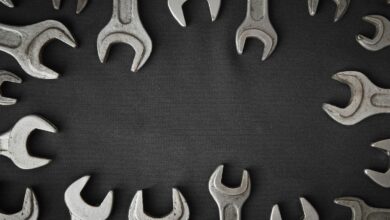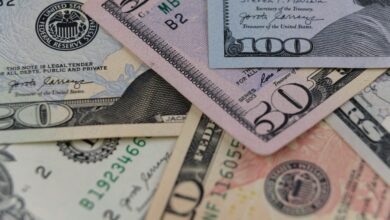How to Plan Your Shop’s Cash Flow
 You’re reopening your storefront. People are organizing car meets, informal car shows and some events. Customers want to wait in your waiting area or browse your in-store merchandise like they used to. As your customers go back to work, feel more certainty about the future and get back into their cars, they will once again demand more of your car modifying services.
You’re reopening your storefront. People are organizing car meets, informal car shows and some events. Customers want to wait in your waiting area or browse your in-store merchandise like they used to. As your customers go back to work, feel more certainty about the future and get back into their cars, they will once again demand more of your car modifying services.
While you can anticipate some growth, you will be challenged to forecast exactly what your finances will look like in six months’ time. Don’t use this as an excuse to avoid planning your cash flow management strategy. Instead, be proactive with your planning.
You will likely find yourself in one of many different financial situations as we re-emerge from national lockdown. SEMA survey results show that 44% of respondents applied for financial assistance through the Paycheck Protection Program. Another 30% sought other forms of loans.
Yes, some PPP loans will be forgiven. Still, we must take a conservative approach to cash flow planning and not let debt pile up, using the pandemic as an excuse.
I recommend creating a “cash flow waterfall” formula to create sales targets, allocate funds accordingly and ensure your bills, suppliers, and employees get paid in full and on time without any stress to you.
Cash flow waterfalls are used in joint ventures (JV) to divide up JV profits among the partners so that both partners are fairly compensated for their initial investment and ongoing support. Investment and support take many complicated forms. As a result, the JV has complex obligations to fulfill via its positive cash flow.
When a JV is formed, partners agree on a cash flow waterfall that gives all parties confidence that they will get their return on investment and compensation for ongoing support.
Shops can use a cash flow waterfall to gain the confidence that you will pay your staff, pay your bills and save using the right priorities.
You may have negotiated deferred or reduced rent, forgiveness on bills, furlough or mandatory vacation with your staff, or extended payment terms with your suppliers, as well as taken on debt. As a result, your upcoming cash flows will be complex as your sales increase and your payments come due. A cash flow waterfall will help you cut through the complexity and have confidence in your company’s ability to pay the bills.
The cash flow waterfall formula I recommend will look something like the below.
On a bi-weekly basis, all positive cash flow from the business will be paid (or allocated) in the following priority:
1) Employee salaries and benefits
2) Short-term payables (outstanding credit card balances, supplier payments due, utility bills due, subscriptions)
3) Secured loan payments (if a loan is secured by your assets, make the required payments)
4) Unsecured loan payments (if the bank cannot seize your property in the event of you defaulting on your loan, prioritize these payments after secured loan payments)
5) Establish/re-establish rainy-day fund equal to 3 months’ fixed costs (rent, salary, utilities, etc)
6) Owner’s salary
7) Pay down excess accumulated accounts payable (deferred rent payments, additional supplier accounts payable)
8) Re-invest in the business or take larger owner’s salary
This cash flow waterfall accomplishes a few important priorities for your shop. First, keep your team paid and protected. Then, pay your most expensive (highest interest rate) debt to minimize your interest expense. Pay your loan payments due, followed by establishing a rainy-day fund in case more crises befall your shop or your customers. Then make sure you can put food on your own table, start working away at any additional debt you’ve taken on this year and, finally, use the remaining money to re-invest in the business or pay yourself more.
This formula allows you to calculate sales targets to cover your waterfall payments, understand your biweekly/monthly costs and allocate funds for their necessary uses so you aren’t surprised by bills. As your sales return to normal, create a waterfall to ensure you’re utilizing your funds responsibly.



